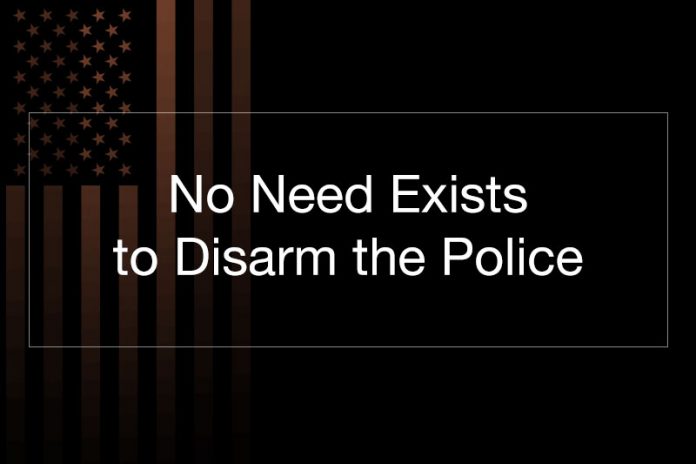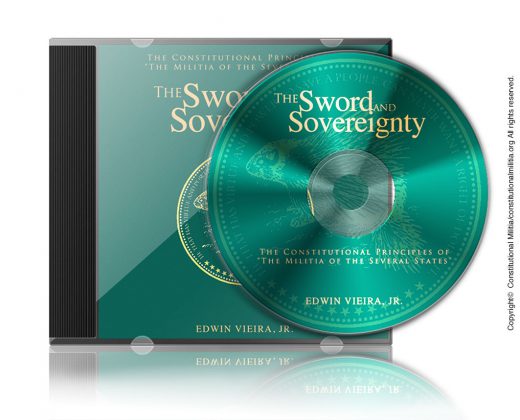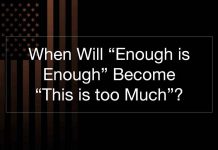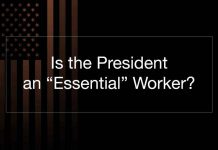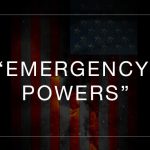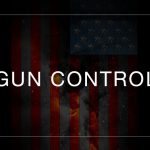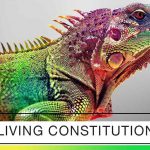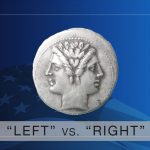Last Updated on November 4, 2020 by Constitutional Militia
Dr. Gary North recently posted an article at lewrockwell.com, entitled “Disarm the Police”, the patriotic sentiment and common sense behind which are too apparent to require any exposition by me.
What does require comment, nonetheless, is that Dr. North—although one of the shrewdest commentators on economics to be found on the Internet— must be ranked among those somewhat myopic Americans who vaguely sense what needs to be done, but who for all their erudition or experience in other areas fail to recognize that the Constitution already provides everything they could desire in the form of a remedy for the problems arising out of the malevolent operations of contemporary State and Local police forces.
Dr. North writes:
THE SECOND AMENDMENT IS FAR TOO WEAK
The Second Amendment to the U.S. Constitution asserts the right —the legal immunity from interference by the State—of American citizens to keep and bear arms. * * *
It doesn’t go far enough. It leave guns in the hands of a subculture that has proven itself to irresponsible to carry them: the police
If I were called upon to write the constitution for a free country * * * I would require every citizen to be armed, except members of the police. A policeman * * * would not be allowed to carry a gun on duty * * * .
Every child, male and female, beginning no later than age six, would be trained by parents regarding the moral responsibility of every armed citizen to come to the aid of any policeman in trouble. Unarmed people deserve protection.
Children would also be taught that the first person to pull a gun to defend an unarmed policeman or any other unarmed person deserves the lion’s share of the credit.
**********
Every member of society would be trained from an early age to honor the law as an adult by being willing to carry a handgun. Everyone would see himself as a defender of the law and a peacekeeper. Guns would be universal. Every criminal would know that the man or woman next to him is armed and dangerous. He would be surrounded at all times by people who see their task as defending themselves and others against the likes of him.
1. The paradoxical part of Dr. North’s exposition is that, even though he justifiably denounces professional police forces in their current forms for having developed an “irresponsible”—and, one could add, authoritarian, militaristic, corrupt, and often even lawless—“subculture”, he does not propose getting rid of them altogether. Instead, he recommends that police forces should simply be disarmed. The obvious error here is that being armed —even being armed and equipped in a para-military fashion, as all too many police forces are—is not by itself the cause of the contemporary police “subculture”, and does not by itself rationalize and encourage the particular “irresponsible” behavior in which police forces routinely engage. The true source of the problem is to be found in the institutional separation of police forces from the American people as a whole, which has instilled in the police the perverse belief that they are independent of, autonomous from, superior to, and even antagonistic towards the people—and, with rampant para- militarization, that they are actually the enemies of the people (or the people are their enemies) in some sort of undeclared “civil war”. This institutional separation and the malign attitudes it generates, rather than the mere equipment the police happen to wield, need to be changed.
2. As I have quoted above, Dr. North tells us what he would do with respect to this problem if he “were called upon to write the constitution for a free country”. No need exists for him, or for us, to imagine that happening, however, because most of what he recommends, and much more of which he is not mindful, the Constitution already requires. Contrary to Dr. North, the Second Amendment is not “far too weak”. The Second Amendment is, right now, the ultimate guarantor of “the security of a free State” if Americans but pay strict attention to all of its first thirteen words—“[a] well regulated Militia, being necessary to the security of a free State”—as well as to the Militia Clauses of the original Constitution in Article I, Section 8, Clauses 15 and 16, and Article II, Section 2, Clause 1. These provisions empower Americans, right now, with everything they need by way of the supreme law, if only they can make themselves exercise the wit and the will, and can amass the wherewithal, to enforce them.
Here, the most relevant principles of organization of “well regulated Militia”—which, along with others, can be found fully documented in my CD- ROM book The Sword and Sovereignty—are: (i) the governmental nature of the Militia; (ii) the near-universal enrollment in the Militia of the able-bodied adults in the community; and (iii) the possession of and training with suitable arms by every member of the Militia with the exception of conscientious objectors. From his initial enrollment at 15 or 16 years of age, every member of “[a] well regulated Militia” would recognize himself as serving in a governmental capacity among the primary guardians of “the security of a free State”. He would realize—because he would be taught again and again—that his most important duty was “to execute the Laws of the Union” (the Constitution first among them) when “employed in the Service of the United States” under Article I, Section 8, Clauses 15 and 16 of the Constitution, and otherwise to execute the laws of his State. And he would always possess the equipment, undergo the training, and especially be imbued with the legal authority necessary to perform those functions. Moreover, prior to enrollment in the Militia, as a legal requirement without exception every child would be instructed by his parents and the schools he attended to honor the Constitution and laws and otherwise to prepare himself to fulfill his duties as a good citizen in and to the Militia.
3. What about the police? Although it may come as a surprise to Dr. North (and many other people as well), professional police forces as America experiences them today can assert no constitutional claim to exist. They have no constitutional status, no constitutional provenance—indeed, the word “police” does not appear in the Constitution. No reference, explicit or implicit, to anything akin to contemporary police forces or other law- enforcement agencies can be found in the Constitution. And no historical argument can be made that, notwithstanding its silence on the matter, the Constitution somehow can be (mis)construed to recognize such forces or agencies, because no establishments or institutions of that kind ever existed in pre-constitutional America.
Rather than providing any legal basis for modern police forces—and especially the para-militarized forces that have taken it upon themselves to function as miniature “standing armies”, often imposing what amounts to “martial law” within their communities in violation of the Declaration of Independence as well as of the Constitution—the Constitution assigns to “the Militia of the several States”, and only to the Militia, the authority and responsibility “to execute the Laws of the Union” when “employed in the Service of the United States” for that purpose, and otherwise to execute the laws of their States. That is, the Constitution itself instructs America that the “police” function is to be performed by the Militia—and if the words of the Constitution are read as they should be through the lens of the legal principle expressio unius exclusio alterius, only by the Militia or only subject to the Militia. So, if the Militia were properly revitalized along strict constitutional lines, contemporary police forces and other law-enforcement agencies would become sub-organizations within the Militia, as were the Minutemen and the Rangers in pre-constitutional America. Being components of the Militia, the police would necessarily be armed—for everyone in the Militia, other than conscientious objectors, must be armed. But, upon becoming components of the Militia, the police would be subject to numerous new and efficacious “checks and balances” within the Militia, as well as outside of them, which would deter “police brutality” and other lawlessness, and where deterrence failed would punish such misbehavior swiftly, surely, and severely. See, for example, my column here entitled “Defeatism Ensures Defeat”. And of course, with essentially every other adult in the community being armed, trained, and imbued with governmental authority as a member of the Militia, the police would receive far more succor and support, as well as supervision, from other citizens than is available to or imposed upon them today.
4. What about crime and criminals? Obviously, with the Militia properly revitalized, not just “crime in the streets”, but also “crime in the suites” as well as all types of political crimes that today escape punishment even when they are exposed, would become a very dangerous business for the perpetrators. As Dr. North writes, “[e]very criminal would know that the man or woman next to him is armed and dangerous. He would be surrounded at all times by people who see their task as defending themselves and others against the likes of him.” And, unless they were already true outlaws hidden in the woods or holed up in some dingy flat in the inner city, all of those individuals with some propensity to commit criminal acts would be enrolled and participating members of the Militia. As such, they would be subject to a certain amount of regular supervision, would be repetitively exposed to education in the fundamentals of good citizenship, and if they fell on personal hard times could call upon the Militia to make some effort to assist them. Thus, a great deal of crime could be cut off at its roots, as well as some of its root causes being trimmed away.
5. At the end of his piece, Dr. North argues, and I believe not entirely incorrectly, that “[t]he fact that citizens in no society think this way is evidence of how well the defenders of State monopoly power have done their work. They want their agents armed and the rest of us unarmed. A free society would reverse this arrangement.” I say “not entirely incorrectly”, because this passage does contain a serious oversight. The “free society” which America is as a matter of law, and could easily be as a matter of fact, has already and permanently “reverse[d] this arrangement”. Under this country’s Constitution, “the defenders of State monopoly power” are actually powerless in the face of the people. These miscreants may “want their agents armed and the rest of us unarmed”. But the Constitution requires that all of us (other than conscientious objectors) be armed in the Militia, precisely to deny “the defenders of State monopoly power” any such “monopoly power”.
So I shall not fault Dr. North because, as he worries some people may conclude, his “proposal is utopian”. His proposal is not impossible; it is simply directed to a proper end through the wrong means. It may be that Dr. North is correct in complaining that, at the present time, many citizens in this society do not “think this way”. That circumstance, however, should be treated as a challenge to be overcome, not accepted as an immovable obstacle. In the final analysis, knowledge is power. And knowledge of what the Constitution really means by “[a] well regulated Militia”, and of how the revitalization of “well regulated Militia” in the several States can restore and then guarantee “the security of a free State” everywhere throughout this country, is available to everyone who cares to take the time to search it out.
©2014 Edwin Vieira, Jr. – All Rights Reserved.




























